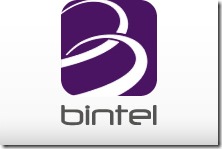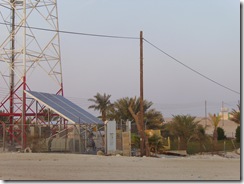Mobily announced today its net profit for 2009 had risen 44 per cent year-on-year to SAR 3.014 billion (US$804 million), from SAR 2.092 billion. Annual gross revenues increased 21 per cent to SAR13.058 billion.
Mobily attributed its high EBITDA margin of 37.04 per cent to the growing contribution from higher margin data revenues, high-spending postpaid subscribers and improved efficiencies.
Mobile broadband revenue based on HSPA technology increased 159 per cent from the previous year, while wholesale revenues represented by sales to third parties increased 470 per cent from 2008.
The operator has more than one million mobile broadband customers subscribed to high-usage bundles and with an overall mobile data exchange exceeding 50 terabytes per day, has the busiest HSPA network in the world. Data revenues contributed 14 per cent to overall revenues in 2009, compared to nine per cent the previous year. However, this is still below North American and Western European averages indicating further growth potential in this sector.
Net profit for the fourth quarter was SAR 1.052 billion, a 35 per cent increase from SAR 778 million year-on-year, and a 30.4 per cent increase from SAR 807 million quarter-on-quarter.
The company’s board of directors has recommended a dividend of SAR 875 million (SAR 1.25 per share), compared to SAR 0.75 per share upon 2008’s results, up almost 67 per cent.
During the year the operator also refinanced a SAR 1.5 billion loan and raised a SAR 900 million loan to extend its infrastructure. Both of these financing packages were achieved in the face of constrained liquidity and financial institutions being risk-adverse.
“The Hajj season was better than expected with Mobily capturing 52 per cent of pilgrims (1.3 million of the 2.5 million pilgrims) who visited the Holy sites. The 3.5G network in and around Makkah saw a 73 per cent increase in traffic compared to the previous year,” stated Mobily’s chairman Abdulaziz Al Sughayer.
Al Sughayer added the operator will continue to invest in infrastructure, its strong brand appeal and network distribution capabilities across the kingdom. Additionally, voice and value added data services, particularly for local and global enterprise customers, will be enhanced by Mobily’s participation in the Tata Global Network (TGN) Gulf Cable System, which will connect the region to the world’s major hubs and city centres. The system will provide added resilience for Mobily’s infrastructure and service capabilities and will give its users access to new high-speed routes to the world.
Mobily is 26.25 per cent owned by Etisalat and ended 2009 with an overall subscriber base of 18.2 million.





